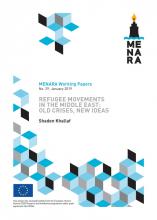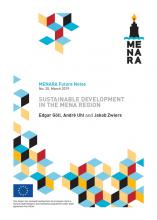WORLD MIGRATION REPORT 2018: CHAPTER 7
Authors: Marie Mcauliffe, Adrian Kitimbo, Alexandra M Goossens, Akm Ahsan Ullah
Introduction
The chapter discusses migration journeys and how migrants consider migration before and during such travel, acknowledging that there is a great diversity of experiences, but that nevertheless, some important aspects can be drawn from current migration research and practice. The next section provides a brief examination of migrants’ “self-agency” (i.e. migrants’abilities to make and act upon independent decisions and choices) and the “continuum of agency” that explains variations in choice when it comes to migrating. Section three then discusses key and emerging issues in migration research that are signalling shifts in how contemplations of migration and migration journeys have been changing for migrants themselves in recent years: (mis)information; preference for visas; risk and reward; and pressures to migrate. In the following section, we summarize some of the recent advances in research methods and technology that are making migrant-centric research more feasible globally.
The conclusion then discusses implications for research and policy initiatives, including those related to the global compact on migration. Overall, we argue that better understandings of migrants’ choices about migration and migration journeys are of fundamental importance to more effective policymaking on migration.
Document publications.iom.int/system/files/pdf/wmr_2018_en_chapter7.pdf
Sito Web worldmigrationreport.iom.int






